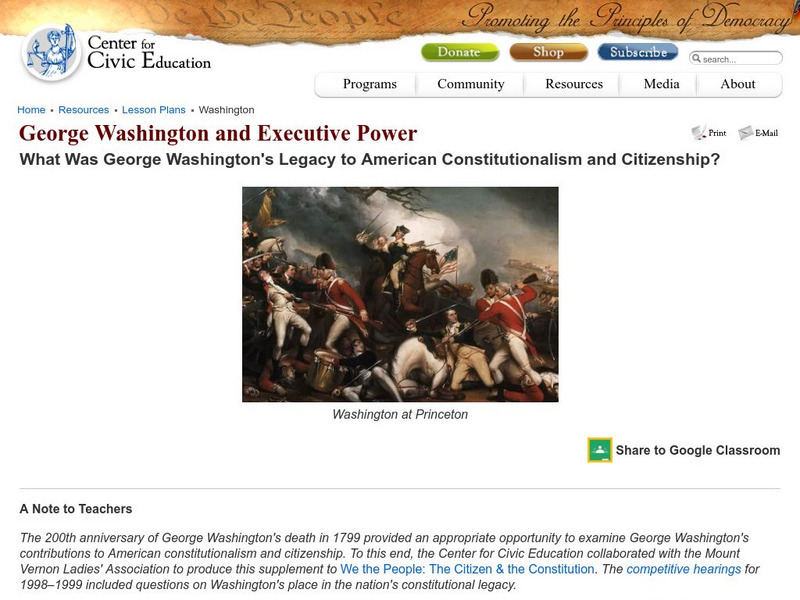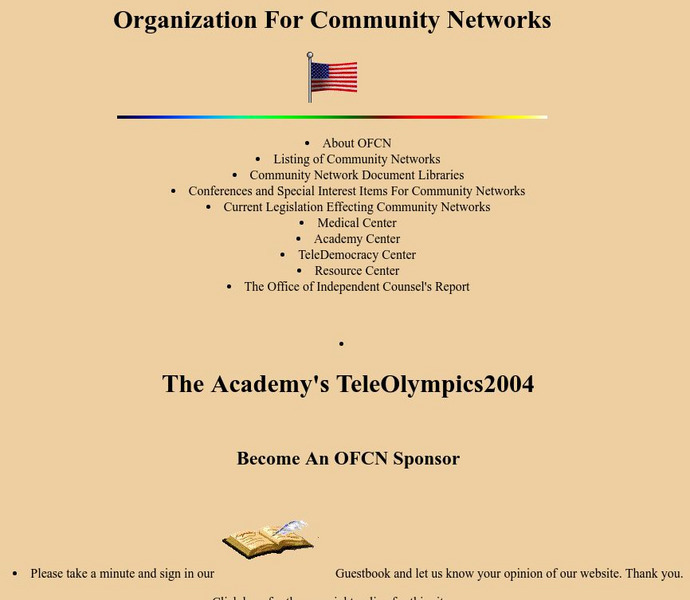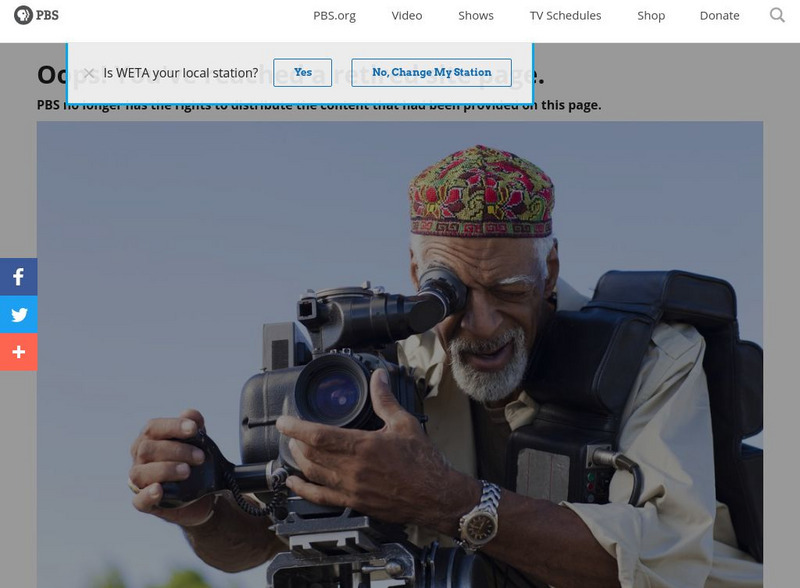Bill of Rights Institute
Bill of Rights Institute: Justice Thomas on National Identity
An examination of a speech Justice Clarence Thomas delivered in 2009 highlighting his thoughts on the Bill of Rights as well has his views on the importance of American civic responsibility.
Center For Civic Education
Center for Civic Education: George Washington and Executive Power
This lesson looks at the legacy of George Washington, perhaps the most influential leader in the creation of the American nation. Through his achievements as commander-in-chief during the Revolution, in support of the drafting and...
Center For Civic Education
Center for Civic Education: Teaching Presidential Elections [Zip]
Citizens, Not Spectators is a voter education program whose goal of the program is to increase the voting rate among young Americans by demystifying the voting process. The lessons familiarize students with the process and the duty of...
Center For Civic Education
Center for Civic Education: James Madison and Executive Power
This instructional activity examines the legacy of the "philosopher statesman," James Madison. Madison combined the intellectual knowledge and creativity of the scholar with the practical savvy of the politician, a man of strong...
iCivics
I Civics: Got Grievances?
Learn what economic, political, and social factors led to the writing of the Declaration of Independence and the American Revolution. For this lesson, students learn what caused the colonies to declare independence from Great Britain and...
iCivics
I Civics: Appellate Courts: Civic Action and Change
In this lesson, young scholars examine civic action, the steps involved, and its various methods, including protests and petitions.
Center For Civic Education
Center for Civic Education: George Washington's Legacy to America
This lesson plan from the Center for Civic Education encourages both teachers and students to learn more about George Washington's contribution to American Constitutionalism and Citizenship.
Center For Civic Education
Center for Civic Education: Why Do We Need a Government?
This lesson introduces students to some of the basic ideas which were of great importance to the Founders. They used these ideas when they developed the American government. Students will learn why they thought a government was needed in...
Organization for Community Networks
Academy Curricular Exchange: Civics Jeopardy
A thorough lesson plan that has students having fun while reviewing for their civics final exam.
iCivics
I Civics: Tribal Government
As sovereign nations, American Indian and Alaska Native tribes develop and manage their own governments. This lesson examines the varied structures and functions of tribal government as well as the relationship these nations have with...
iCivics
I Civics: Elk v. Wilkins (1884)
This mini-instructional activity examines the Supreme Court's ruling that the 14th Amendment's Citizenship Clause did not apply to American Indians born on Native reservations. Students analyze a primary document and discover how the...
iCivics
I Civics: Rousseau Mini Lesson
Explore the ideas of Enlightenment thinker, Jean-Jacques Rousseau. His writings on natural and social freedom, the social contract, and democracy shaped the American system of government in a variety of ways.
iCivics
I Civics: Mexican Cession (1848)
Students explore the causes and effects of the Mexican-American war. They will learn about the land was obtained as a result, the Treaty of Guadalupe Hidalgo, the Gadsen Purchase of 1853, and the new international borders.
iCivics
I Civics: Lyng v. Northwest Indian Cemetery Protective Association (1988)
This mini-instructional activity examines the Supreme Court case that pitted the interests of government economic projects against the religious rights of American Indians. Students learn about the religious protections of the First...
PBS
Pbs Teachers: George Washington and Civic Virtue (Lesson Plan)
A lesson for gaining knowledge and insight into the founders' ideas of civic virtue - civic knowledge, self-restraint, self-assertion, and self-reliance. Includes an examination of an excerpt from a primary source document: George...
iCivics
I Civics: Jim Crow
Use primary documents and images to discover the ways state and local governments restricted the newly gained freedoms of African Americans after the Civil War. Compare, contrast, and analyze post-war legislation, court decisions...
iCivics
I Civics: Pga Tour, Inc. V. Martin (2001)
This mini-lesson explores the Supreme Court's decision that required the Professional Golf Association to accommodate competitors with disabilities in its tournaments. Students learn about the Americans with Disabilities Act, the...
Center For Civic Education
Center for Civic Education: How Constitution Used to Organize the New Govt [Pdf]
This lesson describes how, using the guidelines provided in the Constitution, the First Congress in April 1789 named the new president and vice president, provided funding for the new government, organized the executive branch, organized...
iCivics
I Civics: Rule of Law
Students learn about the rule of law and how it protects individual rights and freedoms. By performing short, scripted skits that illustrate what life might be like without the rule of law, students identify six factors that make up the...
iCivics
I Civics: Colonial Influences
Where did the American colonists get their ideas that lead to a revolution and a whole new kind of government? This lesson explores the Magna Carta, Mayflower Compact, English Bill of Rights, Cato's Letters, and Common Sense.
iCivics
I Civics: Foundation Basics
In this lesson, students are introduced to the characteristics of power, authority, legitimacy, and sovereignty, consider how governments establish and maintain them, and analyze government forms to determine if and how each...
Khan Academy
Khan Academy: Legitimacy of the Judicial Branch: Lesson Overview
This lesson overview from Khan Academy discusses the legitimacy of the judicial branch. This lesson is intended for learners taking high school or college level American Government and Civics courses, including the AP Government course.
Center For Civic Education
Center for Civic Education: What Responsibilities Accompany Our Rights?
These are discussion topics to incorporate into your lesson on rights and responsibilities of citizens. Features questions to encourage debates or essay ideas. Also includes lesson plans.
PBS
Pbs Learning Media: Making Civics Real: Controversial Public Policy Issues
This set of lesson plans contains background information on the teacher and school featured in the one hour video Workshop 7: Controversial Public Policy Issues.
Other popular searches
- U.s. American Civics
- Us American Civics
- Chapter 1 American Civics
- Holt American Civics
- American Civics and Activism
- Chapter 2 American Civics
- Civics American Goverment


![Center for Civic Education: Teaching Presidential Elections [Zip] Lesson Plan Center for Civic Education: Teaching Presidential Elections [Zip] Lesson Plan](https://d15y2dacu3jp90.cloudfront.net/images/attachment_defaults/resource/large/FPO-knovation.png)





